Oceanic Temporalities and the Global Pacific
When and Where
Speakers
Description
We are delighted to invite you to a seminar with professors Freya Schiwy and Alessandro Fornazzari, who are visiting from the University of California, Riverside.
Cinema, Temporality, and the Cold Pacific. Audiovisual Perspectives on Life in Settler Capitalist Ruins
by Freya Schiwy
In this paper I contemplate slow cinema’s potential as a critique of late capitalism and settler time. I place in dialogue Indigenous Studies scholarship from North and South America and suggest that the non-narrative documentary The Island and the Men (Iñaki Moulian, Chile 2017) about the daily lives of Chilote divers who extract Luga algae for uses unknown to them encourages viewers to partake in what I call a “moving stillness” and to sense ways of surviving on a diminished planet. The film is made in response to a motley group of activists who seek to forestall equally plans for coal extraction and elite eco-tourism on Guafo Island. It responds to the uneven subsumption of the Mapuche to the New Imperialism (Jimena Pichinao Huenchuleo) and invites its audiences to sense the “multiple temporalities” (Mark Rifkin) of Indigenous “survivance” (Gerald Vizenor).
About the Presenter
Freya Schiwy is Professor of Media Cultural Studies and a cooperating faculty member in the Department of Hispanic Studies Department and the Department of Comparative Literature and Languages at the University of California, Riverside. She is the author of Indianizing Film. Decolonization, the Andes, and the Question of Technology (Rutgers UP, 2009) and The Open Invitation. Activist Video, Mexico, and the Politics of Affect (University of Pittsburgh Press, 2019). Together with filmmaker, artist and professor of visual arts Byrt Wammack Weber, who directs the Mayan community-based media arts organization Yoochel Kaaj, she edited the volume Adjusting the Lens. Community and Collaborative Video in Mexico (University of Pittsburgh Press, 2017 ). She is also co-editor of Digital Media, Cultural Production, and Speculative Capitalism (Routledge, 2011) and (In)disciplinar las ciencias sociales (Universidad Andina Simón Bolivar, 2002).
Freya Schiwy’s current research explores how collaborative and indigenous video art and activism in Chile conceptualize and make apprehensible (visible, felt) the desire for environmental justice in and against the Capitalocene. This work confronts issues of dispossession, ruined lands, racism, the relation between the human and the non-human, and what it means to live well.
On the "Not-In-Between": Narrativizing Pacific Slave Rebellions in Joaquín Díaz Garcés, Herman Melville, and C.L.R. James
by Alessandro Fornazzari
This paper explores two fictionalized accounts of the successful slave ship rebellion on board the Tryal, off the coast of Chile in 1804. Herman Melville’s 1855 novella, Benito Cereno, uses the historical event to stage an encounter between the emergent imperial power of the US, allegorized in the figure of Captain Amaso Delano, and the declining Spanish colonial empire, allegorized in the figure of Captain Benito Cereno. Parallelly, the Chilean writer Joaquín Díaz Garcés’ 1916 short story, “El camino de los esclavos,” uses the 1804 maritime slave rebellion as material for elaborating a liberal discourse that attempts to smoothly suture the country's slave-trading past, abolition debates, and the myth of stable national institutions. The contradictions that emerge from both Melville’s and Díaz Garcés’ texts are explored through C.L.R. James’ concept of the not-in-between (which I read together with Fred Moten) as a recasting of the dialectic.
About the Presenter
Alessandro Fornazzari works on nineteenth-century and contemporary Latin American literature and culture, including film (with a focus on the documentary form), the visual arts, and political economy. Professor Fornazzari’s research has explored the post-dictatorial problems of memory and restitution in the Southern Cone with a focus on theoretical and artistic reflections on neoliberalism and debt (see Speculative Fictions: Chilean Culture, Economics, and the Neoliberal Transition). Currently, he is working on a project that analyses transitional cultural forms and capital accumulation in the Pacific and another project that explores the relationship between surplus value and surplus enjoyment in Latin American literature.


